Check out our Accommodation Network (including the Senior Students' Forum) and our Accomodation Officer for more housing info.
Introduction
This is our guide to help students navigate accommodation in St Andrews, whether staying in private or University-owned housing.
We represent students through our Accommodation Network (including the Senior Students' Forum), our Accomodation Officer , and our Student Advocacy Co-ordinator.
One of the best places to find accommodation is through the Get a Room group. Spaces often open up throughout the year, as people drop out or postgrad students move house. Note that this group is not affiliated with the Students' Association.
Never pay a deposit without viewing a property. This is a common scam, which has been reported in St Andrews in recent years. Always check if a landlord is registered with Fife Council; if they aren't, the property is being rented illegally, even if the offer is genuine.
FAQs
When should I start looking for accommodation?
Letting agents function on a rolling basis. See the How to Rent Guide below for more information about local letting agents. You might consider finding a group of people you want to live with around December/January, to start planning paperwork together. It's best to decide what suits everyone's needs, in terms of price and location, before you return to St Andrews for semester two.
How do I decide who to live with?
You may have heard that your best friends aren’t always the best people to live with, and this is for a reason. However, this is far from a rule, and you'll never know exactly how compatible someone will be as a flatmate until you live with them.
If you know you’re a morning person, you might want to avoid living with people who are night owls. If you like a fairly calm, peaceful environment, you might want to avoid living with those who prefer hosting house parties. Be prepared to have a long conversation about likes, dislikes, and dividing up tasks with future housemates, and establish good communication as soon as possible.
The Accommodation Network has previously held Flatmate Matchmaking sessions, so like their Facebook page to keep up with future events.
What do I need when applying for private accommodation?
Every letting agency and private landlord is different, but you can expect to need the following documents:
- Application form provided by the letting agency
- Scan of your matriculation card
- Scan of your driving licence or passport (depending on nationality)
- Character reference
- Reference from previous landlord
- Proof of address and/or study
- Guarantor form
It's best to prepare as many of these documents as possible over winter break, especially if you're an international student.
Check the How to Rent Guide for a full breakdown of which forms are required by each letting agency.
What if I'm staying outside St Andrews?
The CCMFL Network offers support if you're staying outside St Andrews and commuting in to study (including if you're in University-managed accommodation like Old Mill). Check out our Commuters page for more information.
Contact
For general issues, contact the Student Accommodation Officer: SRCaccommodation@. Their committee can help students with individual cases, providing advice relating to landlords, letting agents, saving money, and more.
For independent, confidential, and non-directive advice, contact our Student Advocacy Co-ordinator via UnionAdvocacy@. They can check your lease, advise on your rights, and help disputes with landlords, flatmates, or neighbours.
Lease checking
Our Advocacy Co-ordinator can look through your lease to check it's legal and up to date. To use this service, send a copy of your tenancy agreement to UnionAdvocacy@.
Lease checking terms and conditions
- This service is provided by the St Andrews Students’ Association ("the Association"), only to current or prospective students of the University of St Andrews only (hereinafter referred to as "clients" of the service).
- The service is offered only in relation to properties let in Scotland for the purposes of accommodation while engaged in study on a course at the University of St Andrews.
- The service consists of reading a draft or final copy of a lease proposed by the prospective landlord or agent, explaining terms and conditions therein, and suggesting points that the client may wish to discuss with the prospective landlord or agent. Such suggestions may refer to requirements of relevant legislation and associated guidance, principally the Private Housing (Tenancies) (Scotland) Act 2016 and government-published guides to this act.
- The service is provided on a good faith basis with reasonable skill and care, but it is not professional legal advice that clients can rely on. Clients are advised to take appropriate professional legal advice on any matters that they are not comfortable with.
- The Association will ensure that this service is only offered by appropriately trained staff. No other staff or volunteer may offer comment on a lease. Appropriately trained in this case denotes successful completion of a course such as Shelter Scotland/Scottish Government Private Residential Tenancy training, or equivalent.
- The Association will not, under any circumstances, direct a client to sign or not to sign a lease.
- The Association shall not enter into direct contact with the landlord or their agent, nor any associated regulatory bodies such as Fife Council, concerning the lease. All such communications and the decision on whether to enter into them are, and remain, the sole responsibility of the client.
- Comments are made on the lease as presented by the client, and any additional information supplied by the client about the property etc. The Association accepts no responsibility for changes made to the lease after the consultation, material facts that were not disclosed during the consultation, or erroneous information supplied by the client.
Marks Out Of Tenancy
The private renting market in St Andrews is highly competitive, making it easy for poor housing conditions to go unchallenged. Students need to approach the market with knowledge of their rights and responsibilities as a tenant.
That's why we have partnered with Marks Out Of Tenancy, a platform for sharing experiences and creating transparency about living conditions.
Their website lets tenants leave reviews of landlords and properties, allowing prospective tenants to make informed decisions, and rewarding the best landlords and letting agents.
If you have recently moved out of a rented property, leave a review!
Guides
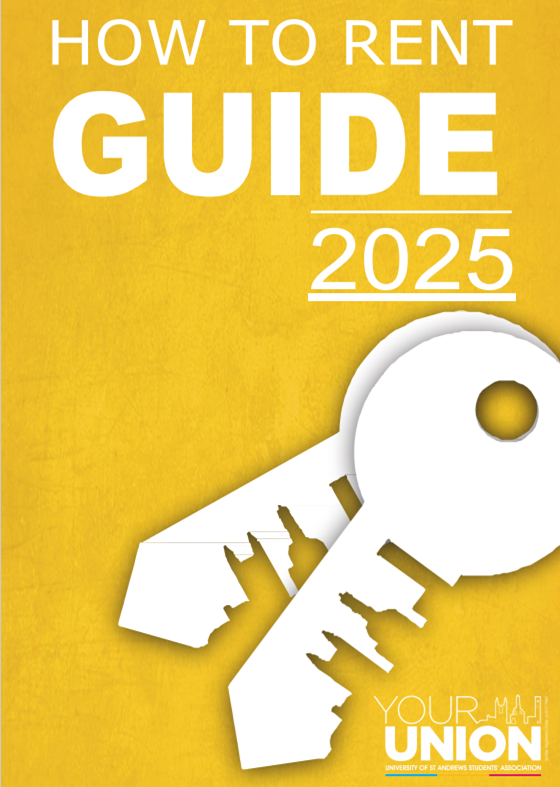
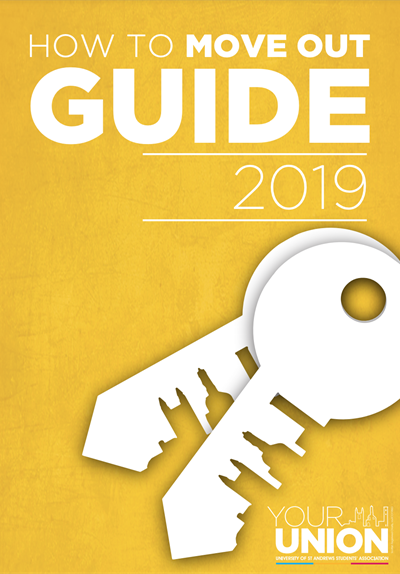
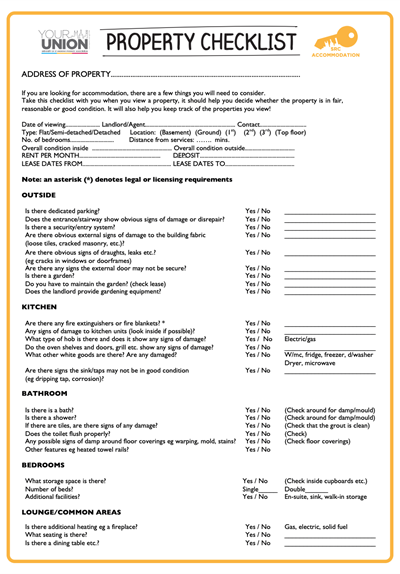
![]()
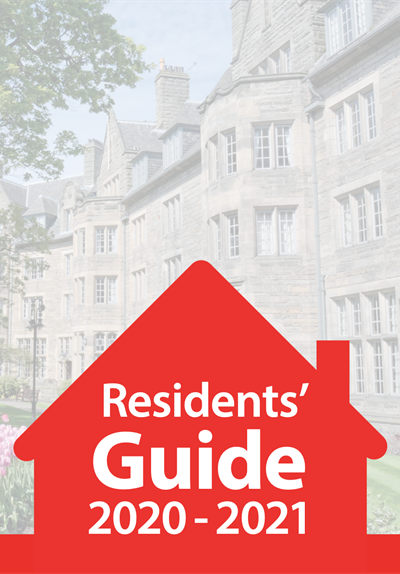
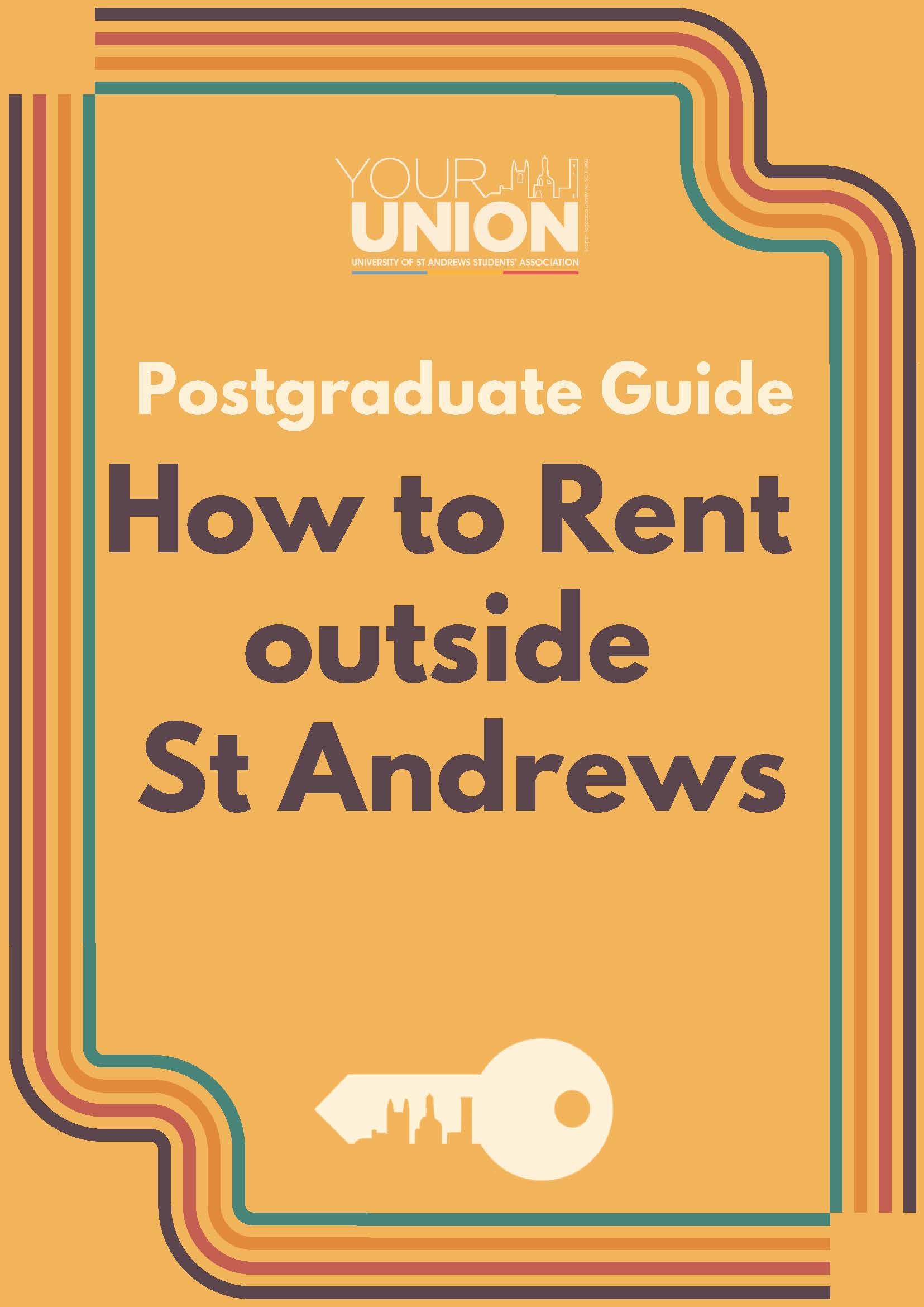
We have an Online Student Safety Guide from Police Scotland available too.